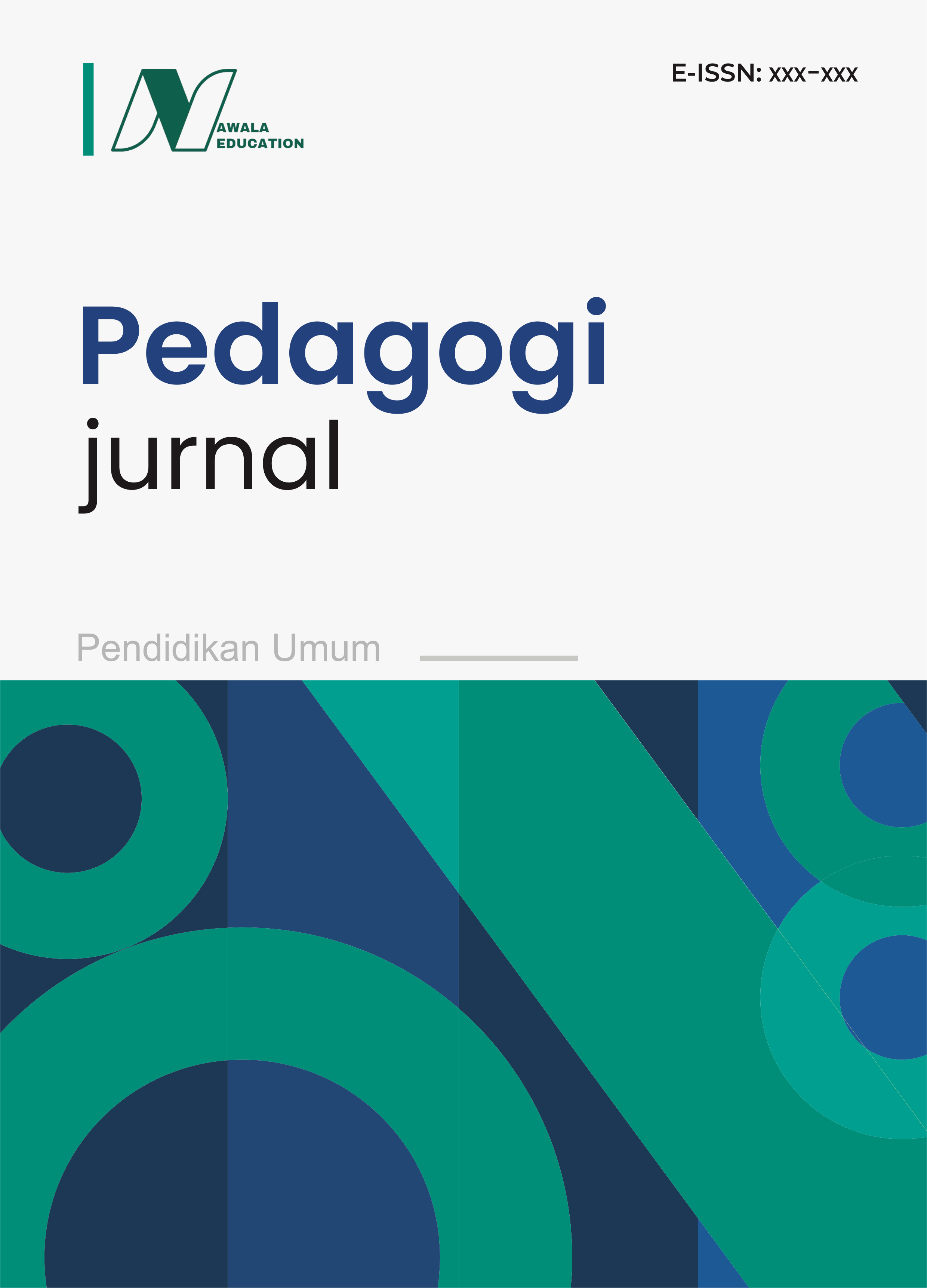Development Of A Pop-Up Book On The Basics Of Pendet Dance For Elementary Schools (Phase A)
DOI:
https://doi.org/10.62872/hzgsr554Keywords:
pop up book, art development, Pendet danceAbstract
Pendet dance is a Balinese dance that contains a variety of basic movements including agem, tandang, tangkis, and tangkep. These movements are introduced early on or at the phase A elementary school level. To develop cognitive understanding, pop up books are used as learning media for the introduction of Pendet dance movements. Because this kind of media has never been available before, it is considered important to provide in schools. Therefore, it is necessary to have interesting learning media applied at SD Negeri Lidah Wetan II Surabaya. The purpose of this study is to describe, 1) the process of developing pop up book of Pendet dance basics as a form of art appreciation education for elementary school (phase A), 2) the feasibility of content components and appearance components of pop up book developed to produce quality books, and 3) user responses about pop up book of Pendet dance basics. Supported by the development method, the pop up book development process uses the Analyze, Design, Development, Implement, Evaluate stages. Validation by media and material experts showed that the content components and appearance of the pop up book were considered very feasible. User trials were conducted to determine student and teacher responses to the pop up book. The percentage of results shows that the pop up book gets a value from media validation of 82.5%, material validation of 92.5%, the first teacher's response of 90%, the second teacher's response of 95% and student responses that show an increase in the answer "yes" from each question asked. Thus, pop up book media can be used as a medium for introducing movement variety for elementary school (phase A) and students interact actively during the learning process through pop up book.
Downloads
References
Abdurachman, Rosid, and Iyus Rusliana. 1983. Arts Education: Dance Arts. Department of Education and Culture.
Agustina, D. A. (2017). Learning Model to Introduce Entrepreneurship to Lower Grade Elementary School Students. Bangun Rekaprima: Scientific Journal of Engineering, Social, and Humanities Development, 43-56.
Arikunto, Suharsimi. 2006. Research Procedures: A Practical Approach. Jakarta: Rineka Cipta.
Astini, Siluh Made. 2007. "Pendet Dance as a Performance Dance (Choreography Study)" in Harmonia Journal of Arts Research and Education, Vol. 8, No. 2, 175-177.
Badudu, J.S. and Sultan Mohammad Zain. 1994. General Indonesian Dictionary. Jakarta: Pustaka Sinar Harapan.
Bandem, I Made. 1983. Encyclopedia of Balinese Dance. Denpasar: Indonesian Dance Academy (ASTI) Denpasar Bali.
__________. 1983. Balinese Dance Movements. Denpasar: Indonesian Dance Academy (ASTI) Denpasar Bali.
Bogdan, Robert C. 1982. Biklen, Knopp Sari; Qualitative Research For Education; An Introduction to Theory and Methods. Allyn and Bacon: Boston London.
Branch, Robert Maribe. 2009. The ADDIE Approach. New York: University of Georgia.
Brown, A. 2020. Interactive Learning through Pop-up Books: Engaging Young Minds. New York, NY: Education Press.
Bruner, J. S. 1960. The Process of Education. Harvard University Press.
Burhanuddin, Nur Wahyuni, Esa. 2010. Learning and Teaching Theory. Yogyakarta: Ar-Ruzz Media Publisher.
Dibia, I Wayan. 1978. The Development of Balinese Dance. Denpasar: Bali Cultural Project.
__________. 1996. "Principles of Beauty in Balinese Dance" in Indonesian Performing Arts Journal 100-127. Yogyakarta: Indonesian Performing Arts Society.
Fatmawati, I., et.al. 2021. The Impact of Working Mothers' Accompaniment on Academic Stress Levels in Online Learning for Elementary School Students. FAKTOR: Journal of Educational Science, 8(1), 12-19.
Gardner, H. 1982. Frames of Mind: The Theory of Multiple Intelligences. New York: Basic Books.
__________. 1983. Frames of Mind: The Theory of Multiple Intelligences. New York: Basic Books.
__________. 1999. Intelligence Reframed: Multiple Intelligences for the 21st Century. New York: Basic Books.
Hadi, Sutrisno. 1986. Research Methodology. Publishing Foundation of the Faculty of Psychology, UGM Yogyakarta.
Indonesian Minister of Education, Culture, Research, and Technology Regulation Number 56/M/2022 on Curriculum Implementation Guidelines for Learning Recovery, Development & Learning. (2022). Number 56/M/2022.
Kurniawan, M. I. 2015. The Tri Education Center as a Character Education Tool for Elementary School Children. PEDAGOGIA: Journal of Education, 4(1), 41-49.
Mariasa, I Nengah and Lodra, I Nyoman. 2019. Development of Android-Based Pendet Dance Videos for Beginner Dancers Aged 10-12 Years. Paper presented at the National Seminar Paramasastra #6, Faculty of Language and Arts, State University of Surabaya, October 30, 2019.
Mulyani, Novi. 2016. Early Childhood Dance Education. Yogyakarta: Gava Media.
Pekerti, Widia, et al. 2008. Methods of Arts Development. Jakarta: Open University.
Indonesian Minister of Education and Culture Regulation Number 8 of 2016 on Books by Education Units with Criteria Suitable for Use in Article 2 Paragraph 3.
Purwanti, I, Y. 2015. Characteristics of Elementary School Children (7-12 years). Yogyakarta: Yogyakarta State University.
Rota, Ketut. 1985. Overview of Dance and Drama in Bali. Denpasar: Indonesian Dance Academy (ASTI) Denpasar Bali.
Seefeldt, Carol and Barbara A. Wasik. 2008. Early Childhood Education. Translated by Pius Nasar. Jakarta: Indeks.
Soedarso. 2006. Trilogy of Art Creation, Existence, and Utility of Art. Yogyakarta: Indonesian Institute of the Arts Yogyakarta Publishing Agency.
Sugiyono. 2016. Quantitative, Qualitative, and R&D Research Methods. Bandung: Alfabeta.
Susanto, Ahmad. 2013. Learning and Teaching Theory in Elementary Schools. Jakarta: Prenadamedia Group.
Development Team. 2017. Development of Creativity and Appreciation of Cultural Works: Evaluation of the Maestro Joint Learning Program. Jakarta: Policy Research and Development Center for Education and Culture, Ministry of Education and Culture.
Trilestari, Irna, et al. 2017. Development of Creativity and Appreciation of Cultural Works: Evaluation of the Maestro Joint Learning Program. Jakarta: Research and Development Agency, Ministry of Education and Culture.
Downloads
Published
Issue
Section
License
Copyright (c) 2024 Ni Luh N. Jeylita Paramacitha, Warih Handayaningrum (Author)

This work is licensed under a Creative Commons Attribution-ShareAlike 4.0 International License.












